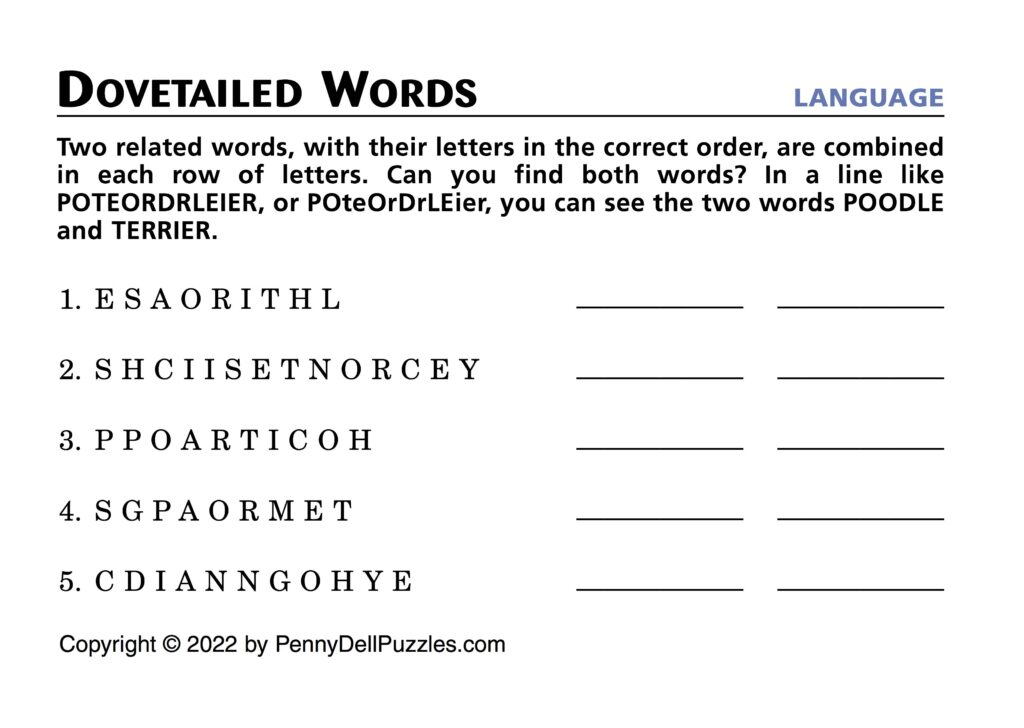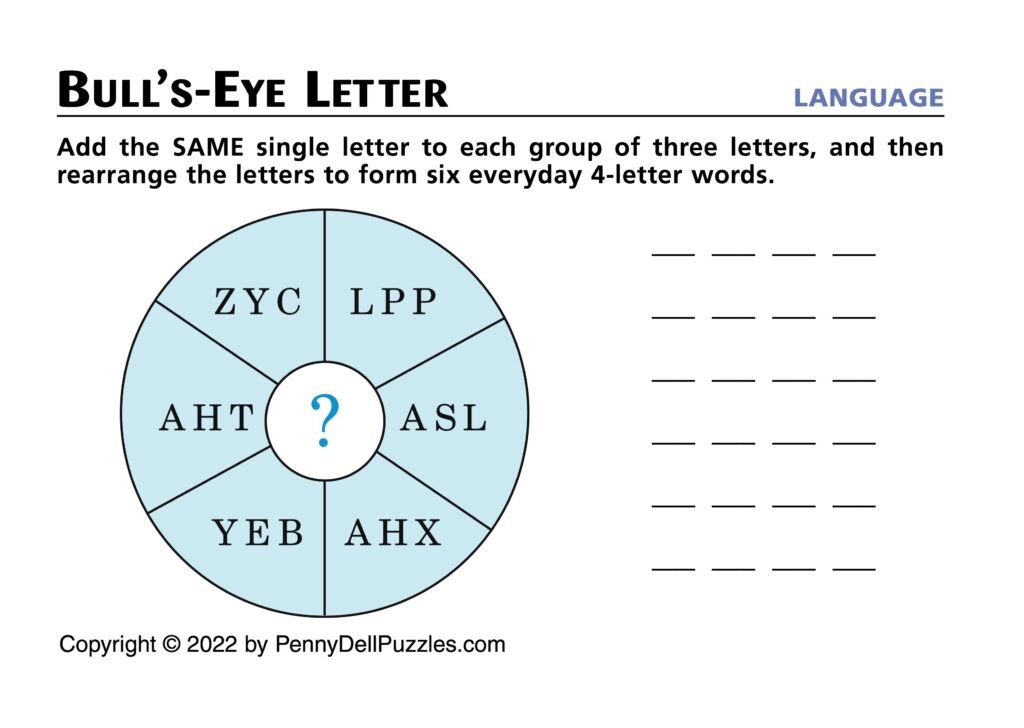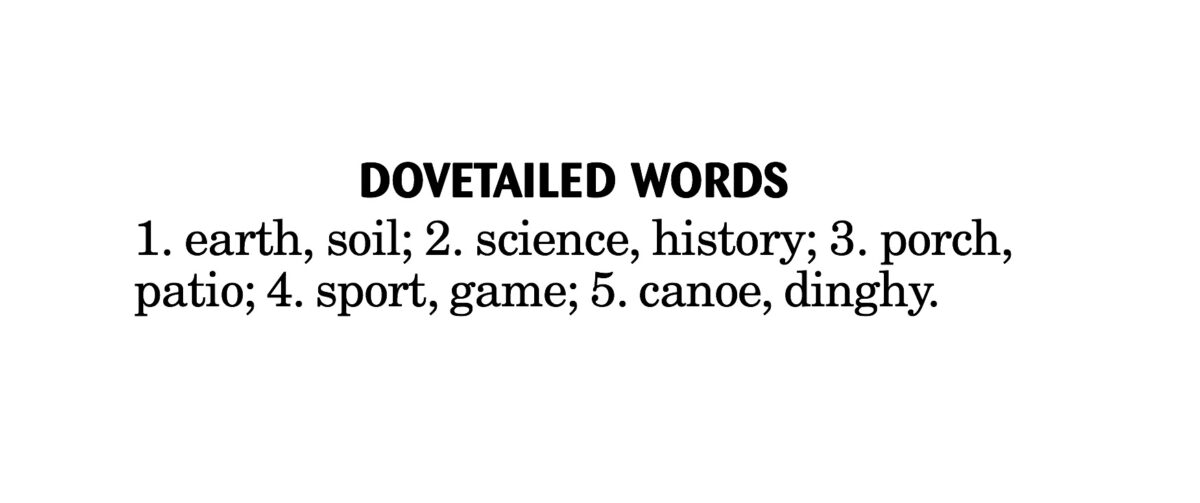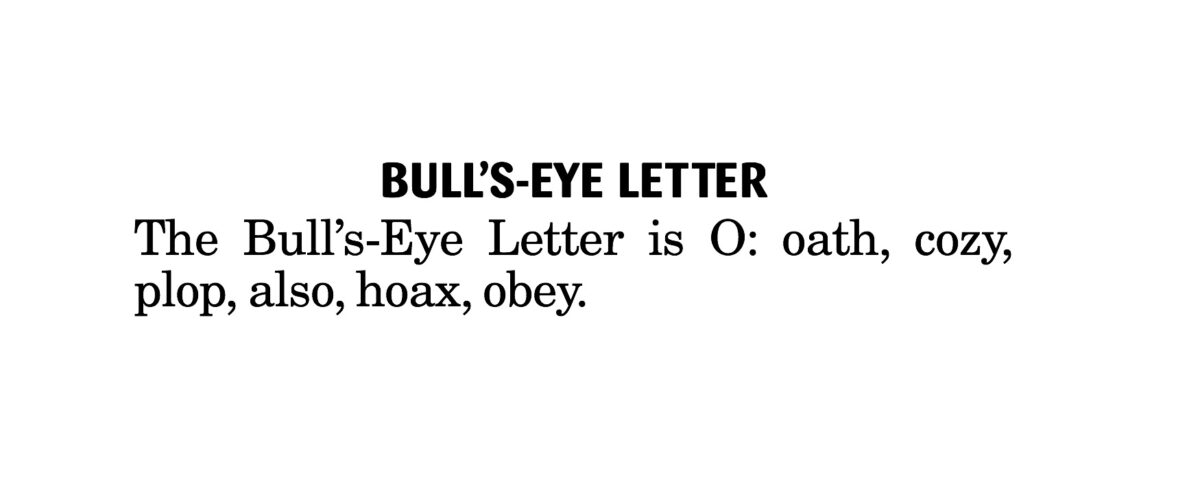Do you love word games? There’s a good chance your ancestors did, too. While the beloved crossword puzzle wasn’t invented until 1913, word games have made life more fun—and challenged our brains—through much of human history.
An etched word square puzzle known as the “Sator Square” dates back to ancient Rome; one was found in the ruins of Pompeii. Riddles appeared in medieval poetry books. And word puzzles provided entertainment in the parlors of the Victorian era.
Word games continue to captivate, intrigue and stump humans in the modern era. Just look at the recent invention and takeoff of Wordle, a daily word game created by a Brooklyn software engineer.
Today’s research also finds that the word games that have entertained us for thousands of years may offer brain benefits.
A study on word games in the International Journal of Geriatric Psychiatry found a connection between doing word puzzles and cognitive measures including:
- Focus
- Attention
- Information processing
- Executive function
- Memory
Study participants who did word puzzles most frequently got the highest cognitive scores. Those who did word puzzles daily or more than once a day scored the best, while those who never or occasionally completed games scored lowest.
So it may pay off to add word puzzles to your daily to-do list, or to do them more frequently if you’re already an avid puzzler. Here are two word games to get you started today.
In Dovetailed Words, you’ll untangle two related words that are intermingled in one string of letters. In Bull’s-Eye Letter, you’ll figure out which one single letter can be added to the scrambled letters in each section to create words.

Were you able to solve it? Click here to double check your answer.

Were you able to solve it? Click here to double check your answer.
Did you give these brain teasers a shot? Comment and let us know how you did!
Are word puzzles like these a part of your daily routine? If so, we’d love to hear whether you feel they offer brain benefits.









Love the games, hope you put more or your sight, or can you get more if you are a customer.
Loved these brain teasers and they are a great way to start the day
I do Wordle guessdle & connections and would love to add these two to my daily routine
Why isn’t there a book of dovetail word puzzles available?
If there is I haven’t been able to find it.
I don’t like Wordle anymore, it’s not that challenging after awhile.
I really like this dovetail word puzzles though. Thanks.
Thank you for the puzzles. If nothing else, it made me realize how much I need to challenge my brain. It’s the next thing on my to-do list!
These are great. Thanks
I CAN’T DO EITHER PUZZLE. 🙁
Took me abou ten monutes to figure “O” is the letter.I like there teasers.
I love brain teasers. I got all of them. I am a big fan of crossword puzzles and soduko. I do them all the time. Keep including them.
Fun and challenging. Thanks
Keep them coming. Great idea. Sometimes Wordle seems too much like luck if you make a good first guess. Not to say it is never challenging, but…
Loved all the games. How can I do them daily?
Did both of them. I liked them. I would like to see more.
It was fun and fairly simple. This is the first time I’ve seen these word games. Thanks!
Got 1,2,3,4 missed # 5 first puzzle. Second puzzle I got right away. I liked both, they make you use your brain.
Think they are both clever. I like word games, sudoku & blocks. I completed both of your new ones successfully. Was proud about Bullseye, especially. I got the concept within a two minutes, but took awhile to pick the proper letter. Would like to try another one. 🙂
Great games and yes, keep them coming! Got both of these and also do crosswords and wordle.
Took me awhile, but I got them all and enjoyed trying.
These puzzles were fun. I love word puzzles and jigsaws. Also I have created hundreds of acrostics to share with friends. Keep these coming!
Solved both puzzles, but found a different combination for the third dovetail. I came up with portico and arch. I think it would qualify as well.
I enjoyed the articles, and had fun with the word puzzles (only missed one!).
I’ve tried Dovetailed words before (in my old puzzle books) and hate ’em! Just frustrating. However, I really enjoy the Bull’s Eye Letter games – I solved this one pretty quickly. Maybe I need to tackle the harder game for more brain benefits, but just don’t like frustration – it doesn’t seem like it benefits me at all. I like feeling good about being able to find the solution without getting a headache!
Great puzzles and also brainteasers. Thank you so much.
Ed
ThankU 4all the info/assistance; very helpful for each of us to stay alert + ahead of this century’s ‘auto dealings’ thrwith :)🕊🤗
Hav a great weekend & good wk!
Dovetail 3 of 5. Other sll but one. Next time I will have a pen and piece of paper.
Live challenges like this. Tks
First game a little fuzzy with results. Second game came out perfect. Fun to figure out and do.
Good brain teasers. Send more.
Interesting games. Fun!!!
Took me about 8 minutes (way too long)😅
BTW love word puzzles, keep them coming.
Only got 1 dovetail but got all bullseye
I do enjoy word games. Much better for me than math games. I play a form of Wordl every day. As far as your games: The Dovetailed Words were pretty difficult although I solved 3 of the 5. The Bulls-eye Letter was easier. I would hope they help my brain. I need all the help I can get.
I really enjoy word games like this and yes, I do think they are very good for our brains 🙂